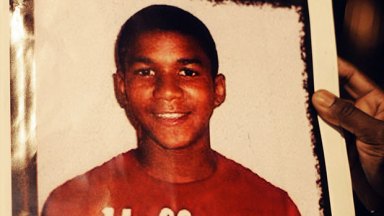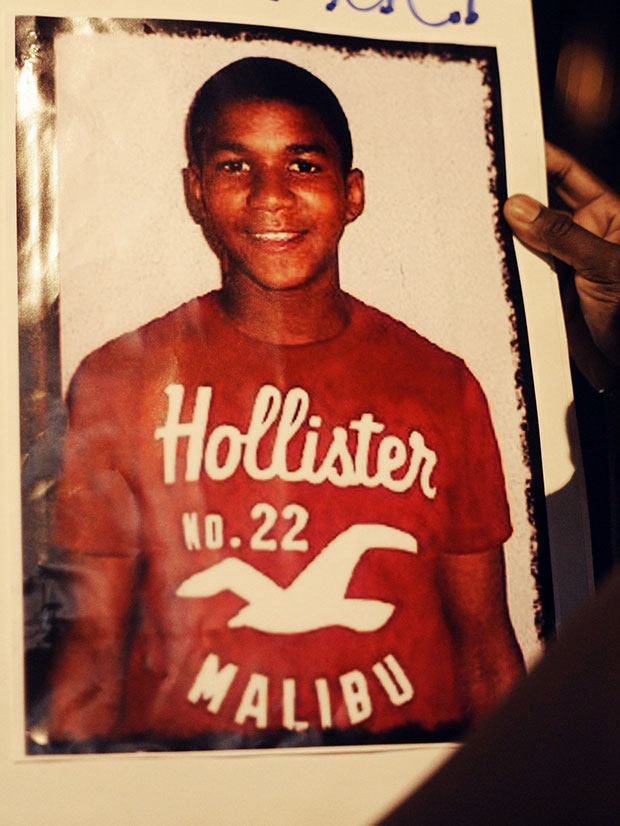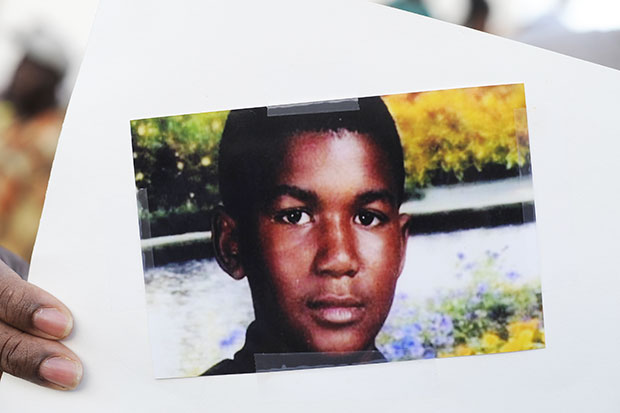
Trayvon Martin was tragically killed on Feb 26, 2012 at the hands of former Neighborhood Watch captain George Zimmerman, who was allegedly racially profiling him at the time for being suspicious. The case sparked nationwide outrage, with protesters calling for justice for the 17-year-old boy. During a memorial held for her son a decade later, Trayvon’s mother, Sybrina Fulton, said, “If you don’t do anything else, don’t give up. That’s my message. Don’t ever give up. Ten years later and I’m still standing strong.” Here’s everything you need to know about the trial surrounding Trayvon’s shooting and death.

1. George Zimmerman followed Trayvon Martin and called in “a suspicious person.”
On Feb. 26, 2012, George Zimmerman followed Trayvon Martin and called in “a suspicious person” to authorities where he was instructed to stay in the car. He did not do so, and ended up shooting Trayvon, but Zimmerman claimed it was in self-defense. Zimmerman had head injuries that Sanford Police Department’s homicide detective Christopher Serino said were “marginally consistent with a life-threatening episode, as described by him, during which neither a deadly weapon nor deadly force were deployed by Trayvon Martin.”
2. Trayvon had been on the phone with his girlfriend at the time.
Trayvon had been on the phone with his girlfriend at the time. The girl, who wished to remain anonymous, said someone asked Trayvon what he was doing, and Trayvon responded by asking why he was being followed. After that, the line went dead.

3. One of Zimmerman’s calls to dispatch is analyzed for using racially charged language,
One of Zimmerman’s calls to dispatch is analyzed for using racially charged language, but the analysis is inconclusive. He subsequently sues NBCUniversal for allegedly editing a 911 call he made on that night. That case was later thrown out. Another 911 call made on that night features a voice yelling “help, help” before a gunshot went off.
4. A judge rules that Zimmerman’s past marijuana use and fights cannot be brought up in court.
The eventual judge on the case (two judges had previously stepped down), Judge Nelson, rules that Zimmerman’s past marijuana use and fights cannot be brought up in court. She also refuses to let jurors go to the crime scene. While people frequently mistake Zimmerman’s defense as using the “stand your grand” law, Zimmerman’s lawyers waived the “stand your ground” immunity pretrial, and eventually argued that he shot Trayvon in self-defense.
5. An all-female jury finds George Zimmerman not guilty.
An all-female jury finds George Zimmerman not guilty. Given the options of finding him guilty of second-degree murder, manslaughter, or not guilty of either, after 16 hours, the jury reached their verdict.


